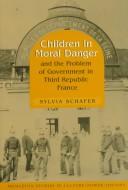| Listing 1 - 2 of 2 |
Sort by
|
Book
ISBN: 9783319179605 3319179594 9783319179599 3319179608 Year: 2015 Publisher: Cham : Springer International Publishing : Imprint: Springer,
Abstract | Keywords | Export | Availability | Bookmark
 Loading...
Loading...Choose an application
- Reference Manager
- EndNote
- RefWorks (Direct export to RefWorks)
This work sets the stage regarding debates about paternalism and health care for years to come. The anthology is organized around four parts: i) The concept of paternalism and theoretical issues regarding the idea of anti-paternalism, ii) strategies for justifying different forms of paternalism, iii) paternalism in psychiatry and psychotherapy, iv) paternalism and public health, and v) paternalism and reproductive medicine. Medical paternalism was arguably one of the main drivers of debates in medical ethics and has led to a wide acknowledgement of the value of patient autonomy. However, more recent developments in health care, such as the increasing significance of public health measures and the commercialization of medical services, have led to new social circumstances and hence to the need to rethink issues regarding paternalism. This work provides an invaluable source for many scholars and practitioners, since it deals in new and original ways with one of the main and oldest issue in health care ethics.
Philosophy. --- Ethics. --- Theory of Medicine/Bioethics. --- Philosophy (General). --- Medical ethics. --- Morale --- Ethique médicale --- Philosophy --- Philosophy & Religion --- Ethics --- Medical ethics --- Paternalism --- Moral and ethical aspects. --- Parentalism --- Biomedical ethics --- Clinical ethics --- Ethics, Medical --- Health care ethics --- Medical care --- Medicine --- Moral and ethical aspects --- Social classes --- Social control --- Social systems --- Bioethics --- Professional ethics --- Nursing ethics --- Social medicine --- Deontology --- Ethics, Primitive --- Ethology --- Moral philosophy --- Morality --- Morals --- Philosophy, Moral --- Science, Moral --- Values

ISBN: 0691633711 0691604673 1400872995 1322886059 9781322886053 9781400872992 0691016127 9780691016122 Year: 2015 Publisher: Princeton, NJ
Abstract | Keywords | Export | Availability | Bookmark
 Loading...
Loading...Choose an application
- Reference Manager
- EndNote
- RefWorks (Direct export to RefWorks)
By exploring how children and their families became unprecedented objects of governmental policy in the early decades of France's Third Republic, Sylvia Schafer offers a fresh perspective on the self-fashioning of a new governmental order. In the aftermath of the Franco-Prussian War, social reformers claimed that children were increasingly the victims of their parents' immorality. Schafer examines how government officials codified these claims in the period between 1871 and 1914 and made the moral status of the family the focus of new kinds of legislative, juridical, and administrative action. Although the debate on moral danger in the family helped to articulate the young republic's claim to moral authority in the metaphors of parenthood, the definition of "moral endangerment" remained ambiguous. Schafer shows how public authorities reshaped their agenda and varied their remedies as their schemes for protecting morally endangered children broke down under the enduring weight of this ambiguity.Drawing on insights from feminist theory, literary studies, and the work of Michel Foucault, Schafer reveals the cultural complexity of civil justice and social administration in both their formal and everyday incarnations. In demonstrating the centrality of ambivalence as a condition of liberal government and governmental representations, she fundamentally recasts the history of the early Third Republic and, more widely, issues a powerful challenge to conventional views of the modern state and its history.Originally published in 1997.The Princeton Legacy Library uses the latest print-on-demand technology to again make available previously out-of-print books from the distinguished backlist of Princeton University Press. These editions preserve the original texts of these important books while presenting them in durable paperback and hardcover editions. The goal of the Princeton Legacy Library is to vastly increase access to the rich scholarly heritage found in the thousands of books published by Princeton University Press since its founding in 1905.
Paternalism --- Family policy --- Child welfare --- Parentalism --- Social classes --- Social control --- Social systems --- Families --- Families and state --- State and families --- Public welfare --- Social security --- Social policy --- Child protective services --- Child protective services personnel --- Children --- CPS (Child protective services) --- Humane societies --- Protection of children --- Social work with children --- Social work with youth --- History --- Government policy --- Charities --- Charities, protection, etc. --- Protection --- France --- Bro-C'hall --- Fa-kuo --- Fa-lan-hsi --- Faguo --- Falanxi --- Falanxi Gongheguo --- Faransā --- Farānsah --- França --- Francia (Republic) --- Francija --- Francja --- Francland --- Francuska --- Franis --- Franḳraykh --- Frankreich --- Frankrig --- Frankrijk --- Frankrike --- Frankryk --- Fransa --- Fransa Respublikası --- Franse --- Franse Republiek --- Frant︠s︡ --- Frant︠s︡ Uls --- Frant︠s︡ii︠a︡ --- Frantsuzskai︠a︡ Rėspublika --- Frantsyi︠a︡ --- Franza --- French Republic --- Frencisc Cynewīse --- Frenska republika --- Furansu --- Furansu Kyōwakoku --- Gallia --- Gallia (Republic) --- Gallikē Dēmokratia --- Hyãsia --- Parancis --- Peurancih --- Phransiya --- Pransiya --- Pransya --- Prantsusmaa --- Pʻŭrangsŭ --- Ranska --- República Francesa --- Republica Franzesa --- Republika Francuska --- Republiḳah ha-Tsarfatit --- Republikang Pranses --- République française --- Tsarfat --- Tsorfat --- Γαλλική Δημοκρατία --- Γαλλία --- Франц --- Франц Улс --- Французская Рэспубліка --- Францыя --- Франция --- Френска република --- פראנקרייך --- צרפת --- רפובליקה הצרפתית --- فرانسه --- فرنسا --- フランス --- フランス共和国 --- 法国 --- 法蘭西 --- 法蘭西共和國 --- 프랑스 --- France (Provisional government, 1944-1946) --- Politics and government --- Moral conditions --- Geschiedenis van opvoeding en onderwijs --- Historische en vergelijkende pedagogiek. --- handboeken en inleidingen. --- 19th century --- 1870-1940
| Listing 1 - 2 of 2 |
Sort by
|

 Search
Search Feedback
Feedback About UniCat
About UniCat  Help
Help News
News